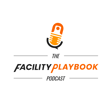
Scheels Sports Complex: A Soccer Haven in the Heartland
Scheels Sports Complex has been the epicenter of soccer excellence in Overland Park, Kansas, for over a decade. In this insightful podcast episode, we sat down with the facility's dedicated manager to delve into the journey of building and managing this complex, its role in the community, the challenges it has overcome, and its vision for the future.
Learn More about Facility Ally:
Learn more about Scheels Soccer Complex:
https://www.opkansas.org/recreation-fun/sports-facilities/scheels-overland-park-soccer-complex/
Be sure to subscribe here, and follow our social channels for more content
Instagram: https://www.instagram.com/yourfacilityally/
TikTok: https://www.tiktok.com/@facilityally
YouTube: https://www.youtube.com/@facilityally
Facebook: https://www.facebook.com/facilityally


